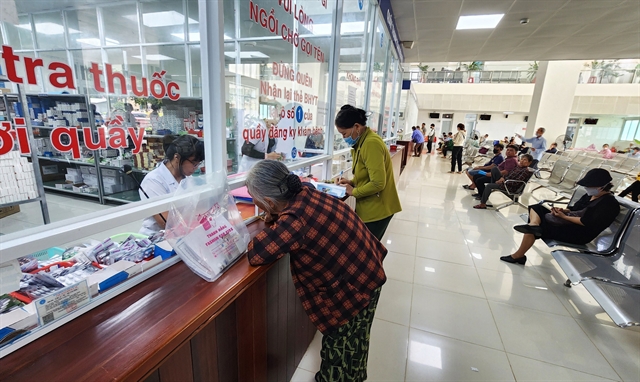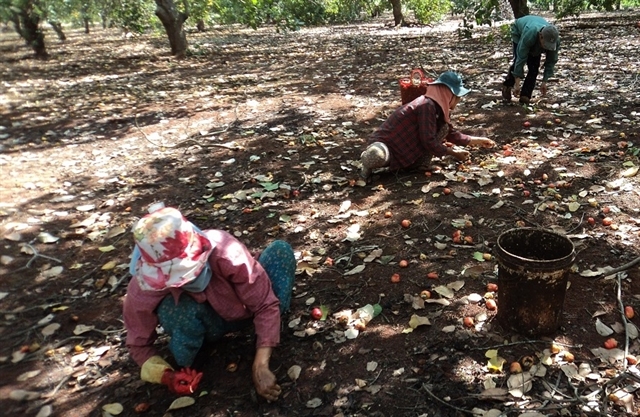 Society
Society

 |
| Many cashew famers have to work as hired labourers as cashew nut collectors on their own land after mortgaging lands for black creditors. — VNA/VNS Photo |
BÌNH PHƯỚC — The mortgaging of cashew crops in the illegal market in ethnic minority areas has become complicated in recent years in Bù Gia Mập District of the southern province of Bình Phước.
The family of Điểu Be in the commune of Đắk Ơ is like many poor cashew famers who borrowed money and mortgaged their land to black market operators.
Due to a difficult life and having to earn money to feed five children, since 2016, he had to mortgage 5,000sq.m of cashew land to get only VNĐ30 million (US$1,300) for five years.
After mortgaging the land and getting the modest amount of money, he and his wife mainly work as hired rubber scrapers to have more income to support the family.
Điểu Be said: "In previous years, our life was very difficult. So we had to mortgage the cashew garden to get money to buy food and pay tuition fees for children and medical treatment.”
Mobilised by the local government, he has regained his land and has affirmed that he will not mortgage land for money on the black market again but focus on farming to earn income.
“After the mortgage expired, I got back the land and continued to grow cashew trees that help bring a stable income,” said Điểu Be.
Unlike Điểu Be, many families have not got their land back after mortgaging it to black market lenders.
The family of Điểu Tin, a member of the Xtiêng ethnic group in Bình Hà Village of Đa Kia Commune, has 2ha of cashew. But due to bad crops, he could not pay the previous debt, so he had to sell the 2ha of unharvested cashew crops to get money to cover daily life.
Or the family of Điểu Brôn, in the same village, who also fell into a difficult situation when he had to borrow VNĐ6 million ($255) with monthly interest of VNĐ100,000 ($4.2) from the black market for his living expenses. He planned to pay the debt by harvesting the cashews. But unfortunately, the crop failed so he had to sell 1.5ha of his cashew garden to the creditors within five years to repay the debt.
Similarly, many farmers in Bình Hà Village had to mortgage their cashew lands to black market creditors as debt payment and receive money to cover their living expenses.
When the cashew harvesting season comes, these people have to work as hired labourers on their own land to earn money.
According to Nguyễn Mậu Hải, deputy chairman of Đắk Ơ Commune, most of the ethnic people are poor. They mainly make a living by working as hired labourers.
Many households have to mortgage cultivated lands for four, even 10 years to get “fresh” money to cover daily expenses, Hải said.
In recent years, as the local authority has enhanced information dissemination to improve people’s awareness of keeping cashew lands and avoid the black market, this situation has been less serious, the deputy chairman said.
According to statistics of the Ethnic Minority Committee of Bình Phước Province, the number of ethnic minority households selling unharvested cashew crops was 90 households, mortgaging production land was 21 households, transferring residential land was 95 households, and transferring productive land was 208 households by last year.
Therefore, the committee has requested districts, communes and relevant agencies to strengthen information dissemination as well as maximise the role of village heads and reputable people among ethnic minorities to increase people’s awareness about the harmful effects of the black market and mortgaging land.
Along with that, local authorities have to offer farmers financial and banking services so as to avoid black market loans. — VNS




